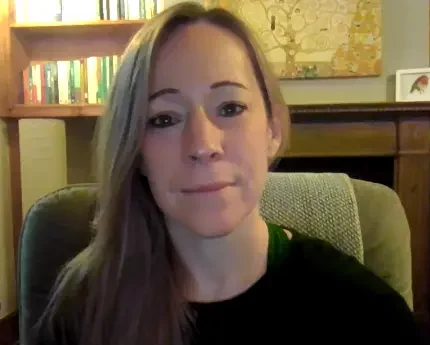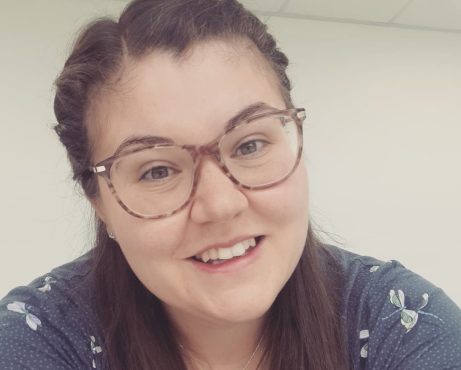Upcoming CPD Courses
Online Workshops in 2026
Working with Suicidality
One person dies by suicide every 40 seconds somewhere in the world. By the nature of our work every therapist can expect to experience at least one suicidal client. Clients who have suicidal thoughts and managing the risk of that are two things that therapists can find most challenging in their work. The fear of judgement should a client die by suicide can invade the therapeutic space, interfering with the relationship. Wherever you are working it can feel scary and lonely to carry the weight of suicidal clients. Therapists may feel compelled to break confidentiality rather than risk censure. So how do we manage the balance? In this workshop we will look at this subject from both an experiential and practical perspective. In particular we will look at the cutting edge IMV model of suicide and how that assists us in having a much clearer idea of who may be most at risk.
In this workshop we will we will:

Unlock your client's potential: Advanced ADHD training
From surviving to thriving - empowering Adult ADHD clients
Are you ready to take your skills as a therapist to the next level? Join us for “ADHD II: Helping Clients Survive, Live, and Thrive with Adult ADHD”—an immersive CPD designed exclusively for professionals who already have a foundational understanding of ADHD.
This interactive and dynamic day is crafted to deepen your
expertise, guiding you through real-world adult ADHD case studies. Together, we’ll uncover the unique experiences of clients navigating survival mode, finding ways to live with ADHD, and discovering how to truly thrive.
What makes this CPD unmissable?
· Engage with case studies that bring the realities of adult ADHD to life
· Explore flexible therapeutic approaches, practical tools, and the latest theories
· Gain insights that are transferable to supporting clients facing stress, anxiety, burnout, and more
· Connect with peers in a stimulating, interactive learning environment
· Expand your practice with wisdom from Counselling Psychology, Positive Psychology, and Coaching
Whether your clients are barely staying afloat or ready to soar, this workshop equips you with innovative strategies to support them at every stage. Be inspired. Be challenged. Walk away with skills you can put into practice immediately.
Secure your place today and help your clients transform from
surviving to thriving!
Trainer/Facilitator
This training is developed and delivered for Inspire by Danielle La Roche. Danielle has been an integrative psychotherapist for over 17 years, and is also a coach, clinical supervisor, and trainer.
For the past five years, since her own ADHD diagnosis, Danielle has specialised in working with adult ADHD clients (both individually and within relationship therapy). Her recently obtained MA in Applied Positive Psychology also offered her the opportunity to research ADHD alongside the theories of positive psychology.

Are you working with clients who may have an Eating Disorder?
Are you worried about a client experiencing Disordered Eating?
Is that causing you to worry or have concerns?
Do you feel you know enough about what to do and what not to do?
As psychotherapists/counsellors, we can often experience
clients bringing disordered eating or eating disorders into the therapy room. Sometimes clients may not identify as having a disordered eating issue. Or as therapists we may lack the confidence to
know how best to work with what is being presented.
This CPD workshop will introduce how to work with eating
disorders, considering the different diagnoses, including the signs, symptoms and diagnostic criteria. We will explore the potential causes of eating disorders, considering both the literature and lived experience examples from those living with an eating disorder.
As with all Inspire CPD workshops this will be an interactive and experiential event. We will look at how eating disorders may
present in the therapy room, and also how society can impact the therapeutic process, as we explore the link between society and disordered eating. We explore how to support clients experiencing eating disorders, and the theories and techniques that can help a client challenge their eating disorder.
This workshop aims to provide you with a deeper understanding
of eating disorders, how to work with eating disorders, including
interventions, and resources, & when it might be appropriate to refer on
for further specialist support. By the end of the workshop, you will be better equipped to identify eating disorder behaviours and also feel more confident in knowing how to work with it safely.
Eating Disorders can be difficult to work with and cause anxiety in therapists. To give you both information & confidence we'll cover:
Trainer/Facilitator
This training is developed and delivered for Inspire by Danielle Chadwick. Danielle completed her MSc Integrative Counselling and Psychotherapy in 2021 and since then has been working with clients who experience eating disorders and sexual trauma survivors. Danielle has previously managed an eating disorder counselling service. Danielle looks forward to sharing what she has learned about eating disorders & how to work with them.

This course is suitable for any therapist or supervisor who is interested in learning more about eating disorders & their impact.
The Unwanted Legacy - Generational Trauma
We know from our training that the roots of our adult selves go right back to our first experiences, as well as being influenced by our genetic inheritance from our parents. But what if both of these ‘nature and nurture’ influences were even more nuanced?
Scientists in the emerging field of epigenetics have discovered the mechanism that allows lived experience and acquired knowledge to be passed down the generations. This means that an individual’s life experience doesn’t die with them but endures in genetic form.
What this means for therapy is that although how our parents treated us – and whether our needs were met is important – that the source of our client’s feelings of pain may also lie within the stories of their parents and grandparents rather than in their own. Fragments of life experience, memories and body sensations can live on as if reaching out from the past to try and find resolution in the present.
In this workshop we will weave together the groundbreaking research with therapeutic exercises, and clinical examples to give you a different way of approaching trauma work. Specifically, we will:
Pre Trial Therapy Guidance
New Guidance was published by CPS
We waited a long time for this revision of the Pre Trial Therapy guidance and it was finally published in 2022. It's safe to say in many areas of the country the Police & CPS are still getting to grips with it... and many therapists are unaware of its existence!
In this new and completely rewritten workshop we will consider what the impact is for therapy and therapists. As well as covering all the important and fundamental principles we will allow plenty of time for you to ask questions and we'll use case studies to bring it to life.
After attending delegates will be able to:
This workshop will give you confidence when working with individuals around relationships and introduce you to some of the concepts & theories utilised in couples therapy that you can put to excellent use when just working with a single client. In couples work there is often a focus on attachment through a systemic lens and this is important even when working with individuals.
As with all our courses there will be both experiential elements and direct links to practical ways of working with clients. We will provide practical examples and there will be lots of opportunity for you to explore, ask questions and discuss issues with other therapists.

An Introduction to Working with ADHD
Attention-deficit hyperactivity disorder (ADHD) is a neurodevelopmental disorder, initially associated with childhood but more recently understood to frequently persist into adulthood. Most of us have heard the term ‘ADHD’, whether professionally, in our social circles, or in the media. But what is ADHD, beyond the generalisations, myths, stigmas, and stereotypes?
This CPD will take you on an introductory tour of ADHD. Considering the diagnostic symptoms referred to in the DSM-IV, alongside the wider range of traits reported within both the literature and by those living with ADHD. This is an interactive session in which we will investigate how ADHD may present in the therapy room, along with commonly raised ADHD issues, and ways in which to work with this marginalised group.
Whether working with diagnosed clients, individuals awaiting assessment, ADHD supervisees, or purely having an interest in developing your knowledge of neurodiversity, this CPD will equip you with an understanding of this complex, but fascinating, topic.
How to Book a Place
To book onto any of our courses please complete the online on the bookings page.
You'll be sent confirmation of your booking once you've made payment.
If you have any specific needs around accessibility, suitability of courses or questions regarding this please do email us.
We look forward to seeing you on one of our courses!
Cancellation Policy
Fees are non-refundable. If you cancel 4 weeks or more prior to a course you can transfer your booking to another of our courses. If you cancel late we do offer you the option to re-book another course within the next 12 months at half price.
Please be aware that the courses currently advertised here are the final ones we are offering (See the About Us page). So, if you cancel a booking there will be fewer options available as we move towards March 2026.
Running training courses is administratively hard work. We know that for most training organisations if you cancel you simply lose your fee completely, and many also charge a fee for amending bookings. We feel our policy is the fairest way of doing things, and whilst we realise not everyone will agree with us we have to have a plan & policy in place, which we hope people will understand and accept.
Get in touch
If you've a question please feel free to get in touch through the contact form. If you want to know something about any of our courses, or if you want to ask about a topic that isn't currently on our list of courses then please feel free to email and ask us.
If you want to attend a course and it's not until next year or is on a date you can't attend, then do let us know as we can add new training events based on demand.
Contact Sally French
Contact Lynsey Lowe



